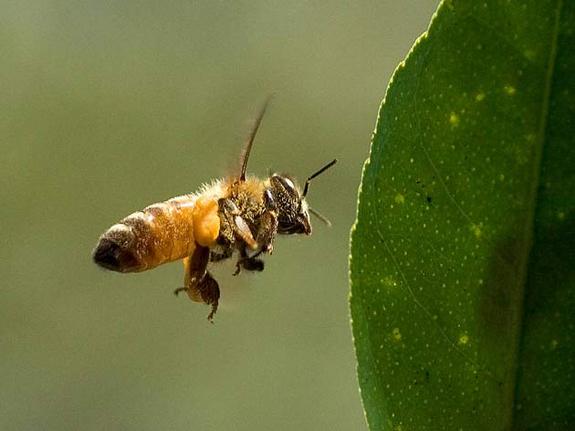
Farmers Get $3 Million in Bee Lunch Money

Get the world’s most fascinating discoveries delivered straight to your inbox.
You are now subscribed
Your newsletter sign-up was successful
Want to add more newsletters?

Delivered Daily
Daily Newsletter
Sign up for the latest discoveries, groundbreaking research and fascinating breakthroughs that impact you and the wider world direct to your inbox.

Once a week
Life's Little Mysteries
Feed your curiosity with an exclusive mystery every week, solved with science and delivered direct to your inbox before it's seen anywhere else.

Once a week
How It Works
Sign up to our free science & technology newsletter for your weekly fix of fascinating articles, quick quizzes, amazing images, and more

Delivered daily
Space.com Newsletter
Breaking space news, the latest updates on rocket launches, skywatching events and more!

Once a month
Watch This Space
Sign up to our monthly entertainment newsletter to keep up with all our coverage of the latest sci-fi and space movies, tv shows, games and books.

Once a week
Night Sky This Week
Discover this week's must-see night sky events, moon phases, and stunning astrophotos. Sign up for our skywatching newsletter and explore the universe with us!
Join the club
Get full access to premium articles, exclusive features and a growing list of member rewards.
There's no such thing as a free lunch — unless you're a bee. A new Department of Agriculture initiative offers up to $3 million to improve the food supply for honeybees.
Of course, the bees really do earn their keep. Commercial honeybees alone pollinate some $15 billion of produce each year, according to the Associated Press, a number that doesn't include the economic impact of native bees that also pollinate crops. But both native bees and imported honeybees are struggling in the face of colony collapse disorder, a mysterious ailment that kills off whole hives. Colony collapse may result, in part, from a plant virus that has started infecting bees, scientists believe. Other deadly viruses and possibly chemical contaminates play a roll as well.
To stave the losses, the USDA program will pay farmers and ranchers in Michigan, Minnesota, Wisconsin and North and South Dakota to reseed pastures with clover, alfalfa and other plants that bees love, the AP reports. Livestock can also use these pastures to graze. Feeding bees may help them stave off illness, the agency hopes, particularly in an agricultural landscape dominated by corn, soybean and cotton — not the insects' preferred plants.
Follow Stephanie Pappas on Twitter and Google+. Follow us @livescience, Facebook & Google+.
Get the world’s most fascinating discoveries delivered straight to your inbox.

Stephanie Pappas is a contributing writer for Live Science, covering topics ranging from geoscience to archaeology to the human brain and behavior. She was previously a senior writer for Live Science but is now a freelancer based in Denver, Colorado, and regularly contributes to Scientific American and The Monitor, the monthly magazine of the American Psychological Association. Stephanie received a bachelor's degree in psychology from the University of South Carolina and a graduate certificate in science communication from the University of California, Santa Cruz.
 Live Science Plus
Live Science Plus










